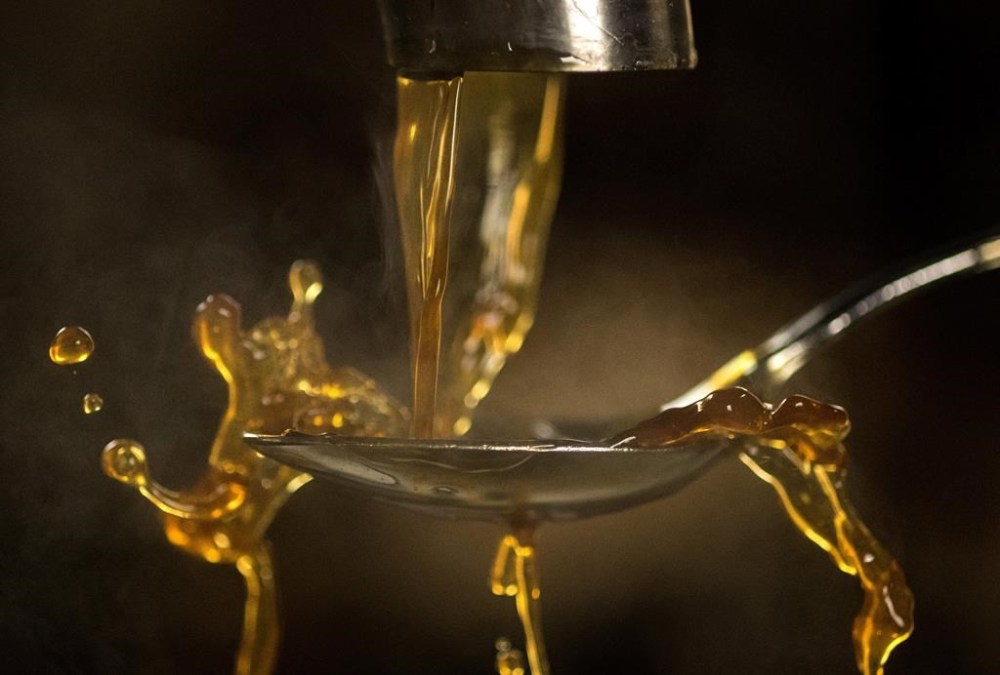Quebec maple syrup producers fear ‘major consequences’ if Trump tariffs go ahead
Advertisement
Read this article for free:
or
Already have an account? Log in here »
To continue reading, please subscribe:
Monthly Digital Subscription
$0 for the first 4 weeks*
- Enjoy unlimited reading on winnipegfreepress.com
- Read the E-Edition, our digital replica newspaper
- Access News Break, our award-winning app
- Play interactive puzzles
*No charge for 4 weeks then price increases to the regular rate of $19.00 plus GST every four weeks. Offer available to new and qualified returning subscribers only. Cancel any time.
Monthly Digital Subscription
$4.75/week*
- Enjoy unlimited reading on winnipegfreepress.com
- Read the E-Edition, our digital replica newspaper
- Access News Break, our award-winning app
- Play interactive puzzles
*Billed as $19 plus GST every four weeks. Cancel any time.
To continue reading, please subscribe:
Add Free Press access to your Brandon Sun subscription for only an additional
$1 for the first 4 weeks*
*Your next subscription payment will increase by $1.00 and you will be charged $16.99 plus GST for four weeks. After four weeks, your payment will increase to $23.99 plus GST every four weeks.
Read unlimited articles for free today:
or
Already have an account? Log in here »
Hey there, time traveller!
This article was published 23/01/2025 (296 days ago), so information in it may no longer be current.
MONTREAL – Quebec’s maple syrup producers say they are worried their industry will take a big hit if U.S. President Donald Trump goes ahead with his threat to slap 25 per cent tariffs on Canadian exports on Feb. 1.
Joël Vaudeville, spokesman for Quebec Maple Syrup Producers, said the group’s 13,500 members and the province’s maple syrup processors fear sales will drop if the tariffs drive up the price of their products in the United States.
“It’s a source of concern for us because the vast majority of Quebec maple syrup exports go to the United States,” Vaudeville said in an interview Thursday, explaining that about 55 per cent of Quebec’s total maple syrup production was shipped south of the border in 2024.

A decrease in American consumption would spell “major consequences” for the Quebec industry, he said, questioning whether Americans, who in 2023 bought $368 million worth of Quebec syrup, would be willing to pay more.
“We don’t know how consumers would react to a possible increase in the cost of Quebec maple syrup on American supermarket shelves,” he said, noting the situation remains unclear as Trump’s threatened deadline approaches.
In the United States, big buyers of Quebec maple syrup such as Costco might continue stocking pricier Quebec maple syrup products or they could decide to replace them with other products altogether, he said.
Quebec is by far the largest maple syrup producer in the world, turning out an average of 72 per cent of the global supply, according to Quebec Maple Syrup Producers. Most of it comes from regions to the east of Montreal, which stand to be hardest hit if tariffs are imposed.
Maurice Doyon, a professor of agricultural economics and consumer science at Université Laval, agreed that it’s hard to predict what will happen to Canadian maple syrup sales in the United States if tariffs are imposed. Among other factors, it will depend on how much American retailers raise prices.
However, he said one group does stand to gain from tariffs: American maple producers, who currently account for less than 30 per cent of the world’s production.
“This is going to be mostly beneficial for maple syrup producers in the U.S. That will allow them to increase their prices, and if (the tariffs last several years), they will increase production because they have the potential to do it. They have a lot of maple trees there that are not being (tapped),” he said.
Although Vaudeville said that it’s too early to say exactly how Quebec’s industry will respond, he suggested that it could pivot to other markets including Europe, Asia and Australia.
Another option, Vaudeville added, is to temporarily store unsold syrup in what his organization calls its “strategic reserve.” Unlike some other agricultural products, he said, maple syrup can be stored in barrels for extended periods of time without losing value.
“We could foresee, for example, the Quebec government buying a quantity of maple syrup in advance to be able to maintain payments to producers, so that we can resell this syrup in a few years or a few months, once the Trump storm has passed,” he said.
In a written statement, the Maple Industry Council, which represents Quebec companies that process and sell maple syrup products, said it will not comment until more information about the proposed tariffs are released.
This report by The Canadian Press was first published Jan. 23, 2025.


